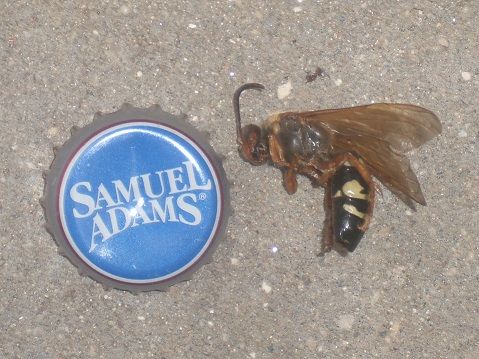especially the ones I call 'yellow jackets'. Them lil' suckers are real aggressive, much more so than the red wasps. Every time I've filled the bird feeders this year, they building a nest inside each feeder (I've never had this problem before).
While I always expect them to be an issue at the deer stands, I don't like them to be buzzing me constantly on the back porch... I hate them almost as much as I hate fire ants, scorpions & mosquitos.

While I bought 2 of these glass traps years ago, you can easily make some out of soda/water bottles if you are also having issues with them.
http://www.prairiestory.com/2010/09/homemade-wasp-trap.html
While I always expect them to be an issue at the deer stands, I don't like them to be buzzing me constantly on the back porch... I hate them almost as much as I hate fire ants, scorpions & mosquitos.

While I bought 2 of these glass traps years ago, you can easily make some out of soda/water bottles if you are also having issues with them.
http://www.prairiestory.com/2010/09/homemade-wasp-trap.html





